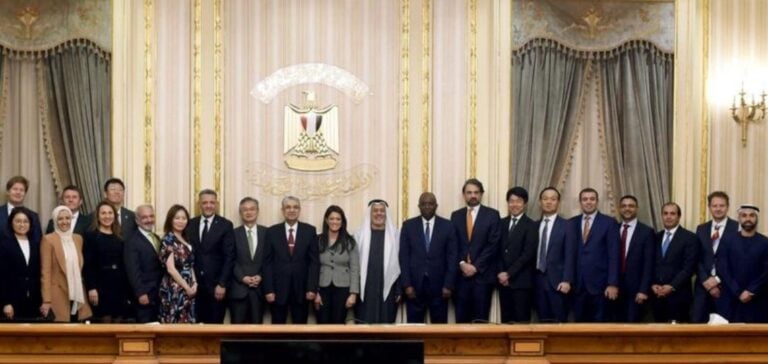AMEA Power has signed power purchase agreements (PPAs) with the Egyptian Electricity Transmission Company for the development of two major projects in Egypt.
The first is a 1,000 MW photovoltaic solar power plant, integrating a 600 MWh battery energy storage system in the Benban region, governorate of Aswan.
This project will become the largest of its kind in Africa, combining solar power and energy storage.
The second project adds 300 MWh of storage capacity to an existing 500 MW photovoltaic installation at Kom Ombo, also in the governorate of Aswan.
These initiatives aim to strengthen the resilience of the Egyptian power grid, while meeting the country’s growing energy needs.
With a total investment of $800 million, these projects illustrate a commitment to improving Egypt’ s energy security by increasing the share of renewable energies in the energy mix.
The projects focus on decarbonization, contributing to national objectives to reduce carbon emissions and diversify energy sources.
Egypt’s economic and energy objectives
Faced with growing challenges in managing energy demand, Egypt is turning to renewable infrastructure projects to stabilize its grid.
The new Benban solar power plant and the Kom Ombo expansion project will together provide clean energy to around 769,800 homes.
What’s more, these facilities will reduce CO₂ emissions by more than 2.3 million tonnes a year, although the main objective remains the diversification of energy supply sources.
The country is seeking to enhance its energy security while limiting its dependence on fossil fuels.
Recent power cuts have highlighted the need for robust energy solutions.
Battery storage projects, such as those being developed by AMEA Power, are becoming essential to balance electricity supply and demand, particularly in regions with limited transmission infrastructure.
Technology and innovation in energy storage
The battery energy storage systems (BESS) deployed in these projects represent a first on an industrial scale in Egypt.
The 600 MWh capacity of the Benban project will enable excess energy generated during periods of low demand to be stored and released during peaks in consumption.
This not only improves grid efficiency, but also offers a solution to the challenges posed by the intermittency of renewable energies.
By integrating BESS, Egypt is following global trends in energy infrastructure modernization, with a particular focus on grid flexibility and stability.
The use of storage solutions is also essential for the large-scale integration of renewable energies, ensuring more efficient management of the energy produced.
Impact on the energy market and future prospects
The completion of these projects by AMEA Power is expected to play a strategic role in Egypt’s energy landscape.
By boosting the country’s renewable energy production capacity, these initiatives could encourage other players in the sector to consider similar investments.
Egypt has set ambitious targets for 2030, aiming to increase the share of renewable energies to 42% of the total energy mix.
The development of a suitable infrastructure, combining solar power and storage, is in line with these long-term objectives.
As new technologies, such as advanced grid management systems and intelligent storage solutions, develop, the Egyptian energy market could see an evolution towards a more flexible and resilient model.
Economic and social outlook for projects
The economic impact of the projects is not limited to energy production.
With the creation of 2,500 jobs during the construction phases, the projects are expected to stimulate the local economy and support the socio-economic development of the regions concerned.
As a strategic market for renewable energies, Egypt continues to attract investment, creating an environment conducive to innovation and growth.
Egypt’s commitment to diversifying its energy sources and adopting clean technologies reflects a broader effort to meet growing energy needs while minimizing environmental impact.
Initiatives of this kind can also serve as a model for other countries in the region, demonstrating the economic viability of large-scale renewable energies.






















